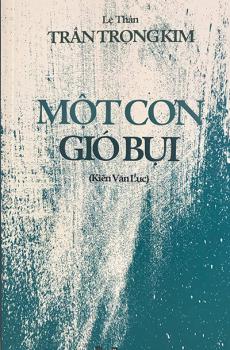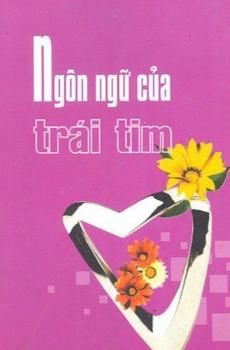Six to Sixteen A Story for Girls
Six to Sixteen A Story for Girls
Log in to download this book.
| Publisher | unknown |
|---|---|
| Accessible book producer | Public domain |
| Published year | 2006 |
| Coppy right | Unknown |
*** START OF THIS PROJECT GUTENBERG EBOOK SIX TO SIXTEEN ***
Produced by Juliet Sutherland, Julia Miller, and the Online
Distributed Proofreading Team at http://www.pgdp.net
Transcriber’s Note
Obvious typographical errors have been corrected. A list of the changes is found at the end of the text. Inconsistencies in spelling and hyphenation have been maintained. A list of inconsistently spelled and hyphenated words is found at the end of the text.
A less-common character is used in this version of the book: ŏ (o with breve). If this character does not display correctly, please change your font.
"'I've got a pink silk here,' said I, 'and pink shoes.'" “‘I’ve got a pink silk here,’ said I, ‘and pink shoes.’”
SIX TO SIXTEEN.
A STORY FOR GIRLS.
BY
JULIANA HORATIA EWING.
LONDON:
SOCIETY FOR PROMOTING CHRISTIAN KNOWLEDGE,
Northumberland Avenue, W.C.
New York: E. & J. B. YOUNG & CO.
[Published under the direction of the General Literature Committee.]
DEDICATION.
TO MISS ELEANOR LLOYD.
My dear Eleanor,
I wish that this little volume were worthier of being dedicated to you.
It is, I fear, fragmentary as a mere tale, and cannot even plead as an excuse for this that it embodies any complete theory on the vexed question of the upbringing of girls. Indeed, I should like to say that it contains no attempt to paint a model girl or a model education, and was originally written as a sketch of domestic life, and not as a vehicle for theories.
That it does touch by the way on a few of the many strong opinions I have on the subject you will readily discover; though it is so long since we held discussions together that I hardly know how far your views will now agree with mine.
If, however, it seems to you to illustrate a belief in the joys and benefits of intellectual hobbies, I do not think that we shall differ on that point; and it may serve, here and there, to recall one, nearly as dear to you as to me, for whom the pleasures of life were at least doubled by such interests, and who found in them no mean resource under a burden heavier than common of life’s pain.
That, whatever labour I may spend on this or any other bit of work—whatever changes or confirmations time and experience may bring to my views of people and things—I cannot now ask her approval of the one, or delight in the play of her strong intellect and bright wit over the other, is an unhealable sorrow with which no one sympathizes more fully than you.
This story was written before her death: it has been revised without her help.
Such as it is, I beg you to accept it in affectionate remembrance of old times and of many common hobbies of our girlhood in my Yorkshire home and in yours.
J. H. E.
CONTENTS.
CHAP. PAGE Introduction 11 I. My Pretty Mother—Ayah—Company 20 II. The Cholera Season—My Mother Goes Away—My Sixth Birthday 26 III. The Bullers—Matilda takes Me up—We Fall Out—Mr. George 34 IV. Sales—Matters of Principle—Mrs. Minchin Quarrels with the Bride—Mrs. Minchin Quarrels with Everybody—Mrs. Minchin is Reconciled—The Voyage Home—A Death on Board 40 V. A Home Station—What Mrs. Buller thought of it—What Major Buller thought of it 53 VI. Dress and Manner—I Examine Myself—My Great-Grandmother 59 VII. My Great-Grandmother—The Duchess’s Carriage—Mrs. O’Connor is Curious 67 VIII. A Family History 73 IX. Hopes and Expectations—Dreams and Daydreams—The Vine—Elspeth—My Great-Grandfather 84 X. Thomas the Cat—My Great-Grandfather’s Sketches—Adolphe is my Friend—My Great-great-great-Grandfather Disturbs my Rest—I Leave The Vine 96 XI. Matilda’s News—Our Governess—Major Buller turned Tutor—Eleanor Arkwright 103 XII. Poor Matilda—The Awkward Age—Mrs. Buller takes Counsel with her Friends—The ‘Milliner and Mantuamaker’—Medical Advice—The Major Decides 120 XIII. At School—The Lilac Bush—Bridget’s Posies—Summer—Health 138 XIV. Miss Mulberry—Discipline and Recreation—Madame—Conversation—Eleanor’s Opinion of the Drawing-master—Miss Ellen’s—Eleanor’s Apology 146 XV. Eleanor’s Theories reduced to Practice—Studies—The Arithmetic-master 159 XVI. Eleanor’s Reputation—The Mad Gentleman—Fancies and Follies—Matilda’s Health—The New Doctor 166 XVII. Eleanor’s Health—Holy Living—The Prayer of the Son of Sirach 175 XVIII. Eleanor and I are late for Breakfast—The School Breaks Up—Madame and Bridget 179 XIX. Northwards—The Black Country—The Stone Country 183 XX. The Vicarage—Keziah—The Dear Boys—The Cook—A Yorkshire Tea—Bed-fellows 191 XXI. Gardening—Drinkings—The Moors—Wading—Batrachosperma—The Church—Little Margaret 197 XXII. A New Home—The Arkwrights’ Return—The Beasts—Going to Meet the Boys—Jack’s Hat-box—We Come Home a Rattler 209 XXIII. I Correspond with the Major—My Collection—Occupations—Madame Again—Fête de Village—The British Hooray 219 XXIV. We and the Boys—We and the Boys and our Fads—The Lamp of Zeal—Clement on Unreality—Jack’s Ointment 234 XXV. The “Household Album”—Sketching under Difficulties—A New Species?—Jack’s Bargain—Theories 242 XXVI. Manners and Customs—Clique—The Lessons of Experience—Out Visiting—House-pride—Dressmaking 257 XXVII. Matilda—Ball Dresses and the Ball—Gores—Miss Lining—The ‘Parishioner’s Pennyworth’ 269 XXVIII. I go Back to The Vine—After Sunset—A Twilight Existence—Salad of Monk’s-hood—A Royal Summons 279 XXIX. Home Again—Home News—The Very End 293
SIX TO SIXTEEN.
INTRODUCTION.
Eleanor and I are subject to fads. Indeed, it is a family failing. (By the family I mean our household, for Eleanor and I are not, even distantly, related.) Life would be comparatively dull, up away here on the moors, without them. Our fads and the boys’ fads are sometimes the same, but oftener distinct. Our present one we would not so much as tell them of on any account; because they would laugh at us. It is this. We purpose this winter to write the stories of our own lives down to the present date.
It seems an egotistical and perhaps silly thing to record the trivialities of our everyday lives, even for fun, and just to please ourselves. I said so to Eleanor, but she said, “Supposing Mr. Pepys had thought so about his everyday life, how much instruction and amusement would have been lost to the readers of his Diary.” To which I replied, that as Mr. Pepys lived in stirring times, and amongst notable people, his daily life was like a leaf out of English history, and his case quite different to the case of obscure persons living simply and monotonously on the Yorkshire moors. On which Eleanor observed that the simple and truthful history of a single mind from childhood would be as valuable, if it could be got, as the whole of Mr. Pepys’ Diary from the first volume to the last. And when Eleanor makes a general observation of this kind in her conclusive tone, I very seldom dispute it; for, to begin with, she is generally right, and then she is so much more clever than I.
One result of the confessed superiority of her opinion to mine is that I give way to it sometimes even when I am not quite convinced, but only helped by a little weak-minded reason of my own in the background. I gave way in this instance, not altogether to her argument (for I am sure my biography will not be the history of a mind, but only a record of small facts important to no one but myself), but chiefly because I think that as one grows up one enjoys recalling the things that happened when one was little. And one forgets them so soon! I envy Eleanor for having kept her childish diaries. I used to write diaries too, but, when I was fourteen years old, I got so much ashamed of them (it made me quite hot to read my small moral reflections, and the pompous account of my quarrels with Matilda, my sentimental admiration for the handsome bandmaster, &c., even when alone), and I was so afraid of the boys getting hold of them, that I made a big hole in the kitchen fire one day, and burned them all. At least, so I thought; but one volume escaped the flames, and the fun Eleanor and I have now in re-reading this has made me regret that I burned the others. Of course, even if I put down all that I can remember, it will not be like having kept my diaries. Eleanor’s biography, in this respect, will be much better than mine; but still, I remember a good deal now that I dare say I shall forget soon, and in sixteen more years these histories may amuse us as much as the old diaries. We are all growing up now. We have even got to speaking of “old times,” by which we mean the times when we used to wade in the brooks and——
But this is beside the mark, and I must not allow myself to wander off. I am too apt to be discursive. When I had to write leading articles for our manuscript periodical, Jack used to laugh at me, and say, “If it wasn’t for Eleanor’s disentangling your sentences, you’d put parenthesis within parenthesis till, when you got yourself into the very inside one, you’d be as puzzled as a pig in a labyrinth, and not know how to get back to where you started from.” And I remember Clement—who generally disputed a point, if possible—said, “How do you know she wouldn’t get back, if you let her work out each train of thought in peace? The curt, clean-cut French style may suit some people, whose brains won’t stretch far without getting tired; but others may have more sympathy with a Semitic cast of mind.”
This excuse pleased me very much. It was pleasanter to believe that my style was Semitic, than to allow, with Jack, that it tended towards that of Mrs. Nickleby. Though at that time my notion of the meaning of the word Semitic was not so precise as it might have been.
Our home is a beautiful place in the summer, and in much of spring and autumn. In winter I fancy it would look dreary to the eyes of strangers. At night the wind comes over the top of Deadmanstone Hill, and down the valley, whirls the last leaves off the old trees by the church, and sends them dancing over the closely-ranged gravestones. Then up through the village it comes, and moans round our house all night, like some miserable being wanting to get in. The boys say it does get in, more than enough, especially into their bedrooms; but then boys always grumble. It certainly makes strange noises here. I have more than once opened the back-door late in the evening, because I fancied that one of the dogs had been hurt, and was groaning outside.
That stormy winter after the Ladybrig murder, our fancies and the wind together played Eleanor and me sad tricks. When once we began to listen we seemed to hear a whole tragedy going on close outside. We could distinguish footsteps and voices through the bluster, and then a struggle in the shrubbery, and a thud, and a groan, and then a roar of wind, half drowning the sound of flying footsteps—and then an awful pause, and at last faint groaning, and a bump, as of some poor wounded body falling against the house. At this point we were wont to summon courage and rush out, with the kitchen poker and a candle shapeless with tallow shrouds from the strong draughts. We never could see anything; partly, perhaps, because the candle was always blown out; and when we stood outside it became evident that what we had heard was only the wind, and a bough of the old acacia-tree, which beat at intervals upon the house.
When the nights are stormy there is no room so comfortable as the big kitchen. We first used it for parochial purposes, small night-schools, and so forth. Then one evening, as we strolled in to look for one of the dogs, the cook said, “You can sit here, if you like, Miss Eleanor. We always sits in the pantry on winter nights; so there’ll be no one to disturb you.” And as we had some writing on hand which we did not wish to have discussed or overlooked by other members of the family, we settled down in great peace and comfort by the roaring fire which the maids had heaped to keep the kitchen warm in their absence.
We found ourselves so cosy and independent that we returned again and again to our new study. The boys (who go away a great deal more than we do, and are apt to come back dissatisfied with our “ways,” and anxious to make us more “like other people”) object strongly to this habit of ours. They say, “Who ever heard of ladies sitting in the kitchen?” And, indeed, there are many south-country kitchens in which I should not at all like to sit. But we have this large, airy, spotlessly clean room, with its stone floor, its yellow-washed walls, its tables scrubbed to snowy whiteness, its quaint old dresser and clock and corner cupboards of shiny black oak, and its huge fire-place and blazing fire all to ourselves, and we have abundance of room, and may do anything we please, so I think it is no wonder that we like it, though it be, in point of fact, a kitchen. We cover the table, and (commonly) part of the floor, with an amount of books, papers, and belongings of various sorts, such as we should scruple to deluge the drawing-room with. The fire crackles and blazes, so that we do not mind the wind, though there are no blinds to the kitchen, and if we do not “cotter” the shutters, we look out upon the black night, and the tall Scotch pine that has been tossed so wildly for so many years, and is not torn down yet.
Keziah the cook takes much pride in this same kitchen, which partly accounts for its being in a state so suitable to our use. She “stones” the floor with excruciating regularity. (At least, some people hate the scraping sound. I do not mind it myself.) She “pot-moulds” the hearth in fantastic patterns; the chests, the old chairs, the settle, the dresser, the clock and the corner cupboards are so many mirrors from constant polishing. She says, with justice, that “a body might eat his dinner off anything in the place.”
We dine early, and the cooking for the late supper is performed in what we call “the second kitchen,” beyond this. I believe that what is now the Vicarage was originally an old farmhouse, of which this same charming kitchen was the chief “living-room.” It is quite a journey, through long, low passages, to get from the modern part of the house to this.
One year, when the “languages fad” was strong upon us, Eleanor and I earned many a backache by carrying the huge volumes of the Della Crusca Italian dictionary from the dining-room shelves to the kitchen. We piled them on the oak chest for reference, and ran backwards and forwards to them from the table where we sat and beat our brains over the “Divina Commedia,” while the wind growled in the tall old box-trees without, and the dogs growled in dreams upon the hearth.
It is by this well-scrubbed table, in this kitchen, that our biographies are to be written. They cannot be penned under the noses of the boys.
Eleanor finds rocking a help to composition, and she is swinging backwards and forwards in the glossy old rocking-chair, with a pen between her lips, and a vacant gaze in her eyes, that becomes almost a look of inspiration when the swing of the chair turns her face towards the ceiling. For my own part I find that I can meet the crisis of a train of ideas best upon my feet, so I pace up and down past the old black dresser, with its gleaming crockery, like a captain on his quarter-deck. Suddenly Eleanor’s chair stands still.
“Margery,” she says, laying her head upon the table at her side, “I do think this is a capital idea.”
“Yours will be capital,” I reply, pausing also, and leaning back against the dresser; “for you have kept your old diaries, and——”
“My dear Margery, what if I have kept my old diaries? I’ve lived in this place my whole life. Now, you have had some adventures! I quite look forward to reading your life, Margery. You have no idea what pleasure it gives me to think of it. I was thinking just now, if ever we are separated in life, how I shall enjoy looking over it again and again. You must give me yours, you know, and I will give you mine. Yes; I am very glad we thought of it.” And Eleanor begins to rock once more, and I resume my march.
But this quite settles the matter in my mind. To please Eleanor I would try to do a great deal; much more than this. I will write my autobiography.
Though it seems rather (to use an expressive Quaker term) a “need-not” to provide for our being separated in life, when we have so firmly resolved to be old maids, and to live together all our lives in the little whitewashed cottage behind the church.





